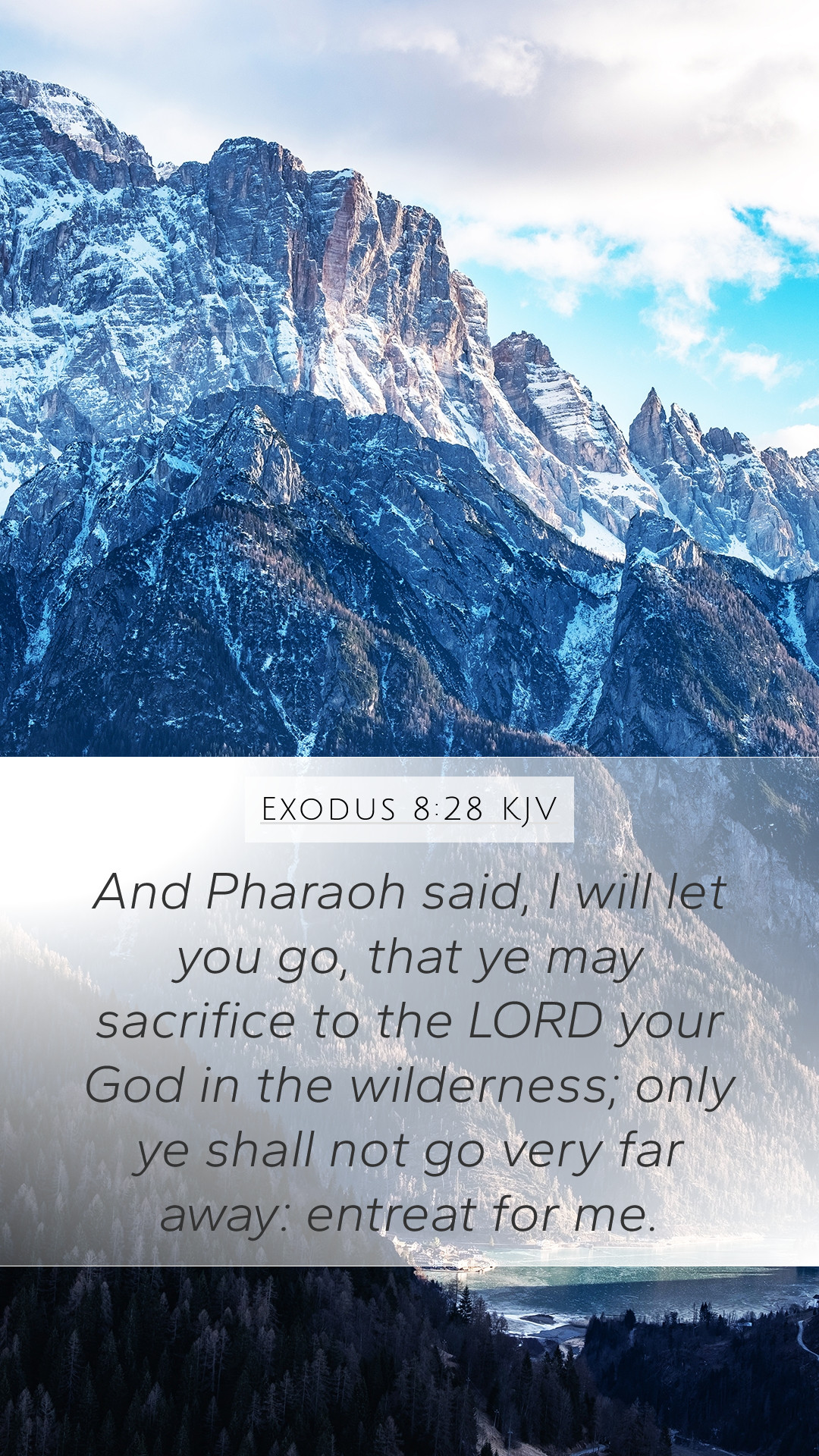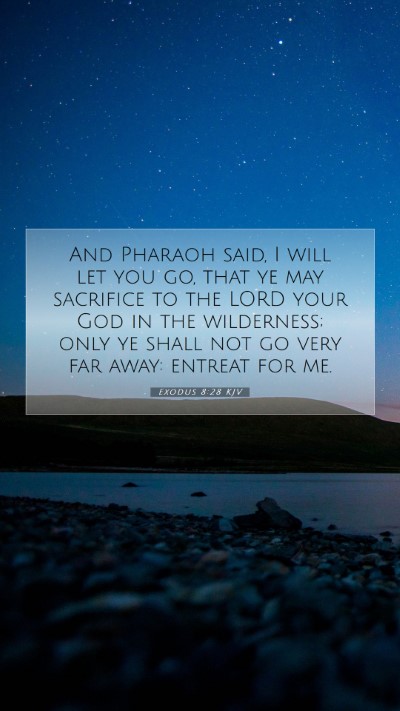Understanding Exodus 8:28
Bible Verse: Exodus 8:28
"And Pharaoh said, I will let you go, that ye may sacrifice to the Lord your God in the wilderness; only ye shall not go very far away: intreat for me."
Overview of the Verse
This verse captures a pivotal moment during the plagues of Egypt, wherein Pharaoh, the ruler of Egypt, reluctantly acknowledges the might of God as he faces the consequences of his disobedience. In this exchange, Pharaoh appears to be negotiating with Moses, trying to find a middle ground while still attempting to assert control over the situation. The verse highlights the tension between divine authority and human obstinacy.
Bible Verse Meanings
Exodus 8:28 presents multiple layers of meaning as interpreted by several learned commentators:
- Matthew Henry: Henry notes the duality of Pharaoh's heart; he recognizes God's sovereignty yet remains resistant to submission. This reflects the struggle many face between acknowledging God's power and yielding to His command.
- Albert Barnes: Barnes emphasizes Pharaoh’s contradiction—while he promises to let the people go to worship, he simultaneously seeks to limit their freedom. This points to the nature of human pride and the reluctance to fully accept God's will.
- Adam Clarke: Clarke interprets this request for Moses to intercede as a moment of desperation for Pharaoh. His plea, "entreat for me," showcases a recognition of the power of prayer, even from someone in a position of authority like Pharaoh.
Key Themes and Insights
The underlying themes from this verse provide important insights for understanding Scripture:
- The nature of God: God is portrayed as a powerful being who commands respect and authority.
- The hardness of the human heart: Despite witnessing miraculous signs, Pharaoh's heart remains hardened, illustrating how stubbornness can block the recognition of divine intervention.
- The power of prayer: Pharaoh's appeal to Moses to pray for him shows the significance of intercessory prayer and its potential impact on leaders, reflecting the need for divine assistance.
Application of the Verse
Understanding Exodus 8:28 can be beneficial in various contexts:
- In Bible study groups, participants can analyze the dynamics of power and submission displayed in this verse.
- In online Bible study, one might explore how human nature often seeks to negotiate with God instead of fully submitting.
- As a Bible study lesson, the verse encourages discussions on prayer's role in seeking God’s mercy, even from those who may be opposed to Him.
Related Bible Cross References
- Exodus 5:1: Moses' initial demand for Pharaoh to let the Israelites go.
- Exodus 7:13: The hardness of Pharaoh's heart despite the miraculous signs.
- Romans 9:17: A New Testament reflection on Pharaoh's hard heart as a demonstration of God's sovereignty.
Conclusion
In sum, Exodus 8:28 encapsulates the struggle between divine authority and human will, encouraging readers to reflect upon their own responses to God's call. Through prayer, submission, and recognition of God’s power, individuals can attain a deeper understanding of Scripture and enhance their Bible study insights.


